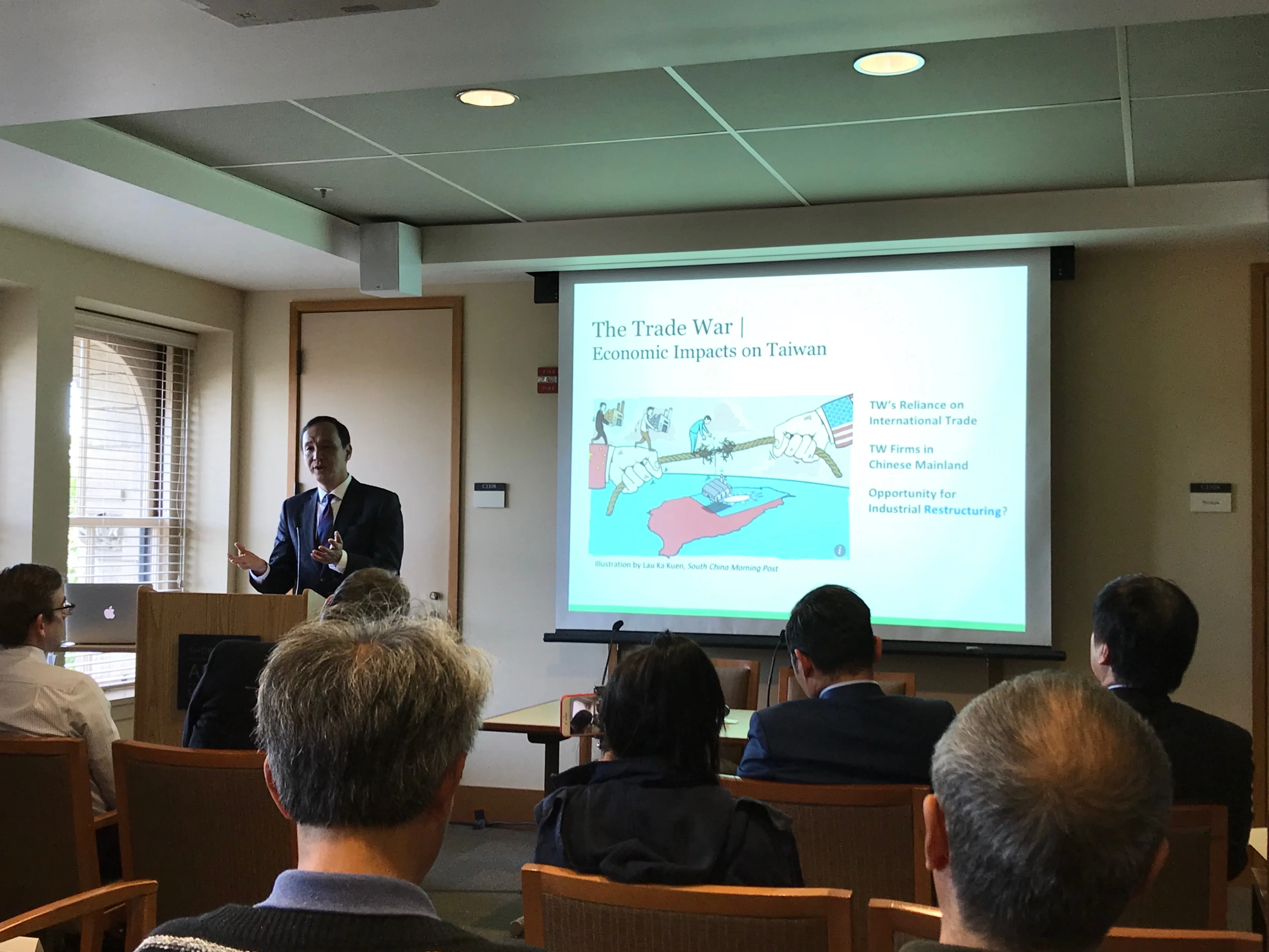Eric Chu, who plans to run for president of Taiwan in the 2020 general election, emphasized the importance of giving more power to Taiwan’s future economy at a talk hosted by the Freeman Spogli Institute on Tuesday.
“To power up our country, we should change our atmosphere to be innovative, to a new economy, to open our regulations [and] to open our door for new talents,” he said. “We should open our society and our industries to all the talent from the world … to be welcomed to Taiwan.”
Chu, who served as the first mayor of New Taipei City when it was turned into a special municipality in 2010, stepped down in 2018 after finishing his second term. In addition to his mayorship position, Chu has served in other governmental roles as a member of Taiwan’s legislature, as the Taoyuan County Magistrate and as Vice Premier of the Republic of China. He became the chairman of the Nationalist Party of China (Kuomintang, KMT) in 2015 and represented the KMT in the 2016 presidential election.
Chu maintained that Taiwan holds an important sense of traditional Chinese culture, proposing that Taiwan should enjoy and promote its Chinese culture for education and artistic production.
“We should be very proud of our Chinese culture, no matter the political reasons,” he said. “The political reasons for so many dynasties or so many regimes is only short-term. [But] Chinese culture has such a long history.”
According to Chu, Taiwan has strong economic and manufacturing ties to Silicon Valley and California due to corporate partnerships and international students in the Bay Area. In addition to visiting Stanford, Chu’s stay in the U.S. involved visits to Bay Area companies such as Facebook, Google, Tesla and Apple.
“Taiwan is the main supplier for [the companies’] products,” Chu said. “For example, TSMC, Taiwan SemiConductor Corporation, manufactures more than 50 percent of the chips for all the world. Quanta Microsystems manufactures about 50 percent of notebook computers for the world.”
In discussing Taiwan’s economy, Chu also raised the point that for most people, what matters most are issues that affect daily lives, such as food, education and policies concerning children and elders.
As mayor of New Taipei, Chu encouraged organic farming through the education system. Under his mayorship, all schools from kindergarten to high schools were required to provide students with organic vegetables or fruits at least once a week.
“Suddenly, about 380,000 students consumed organic vegetables or fruits every day … It was about 28 times of their production,” Chu said. “So that motivated a lot of youths in Taiwan … to be organic farmers … One idea from our life can create resources, create income for the people.”
However, a difficulty that Taiwan faces in the future is how it will sustain its economy, particularly given its low birth rate in recent years. Chu said that Taiwan needs to consider a national plan potentially modeled similarly to Singapore, which is very open to immigrants and foreign workers.
“We should open our society,” Chu said. “We should compete with the rest of the countries in Asia for labor, for people, for talent. If we don’t have the younger generation ourselves, then we have to welcome all of those immigrants abroad.”
Furthermore, Chu commented on Taiwan’s relations with mainland China, asserting that “‘Taiwan’ is always a very important position to us,” despite geopolitics or economic ties between Taiwan and the People’s Republic of China (PRC).
However, he emphasized the importance of maintaining cooperative relationships, noting that about 40 percent of Taiwan’s exports last year were to the PRC.
In light of his planned presidential bid, Chu also emphasized the importance of democracy in Taiwan.
“Democracy is the base for Taiwan … We believe we live in a liberal, free, democratic society. It’s our honor. That’s the choice we have,” he said. “Today, I think we should have confidence in our democracy.”
Contact Michelle Leung at mleung2 ‘at’ stanford.edu.
